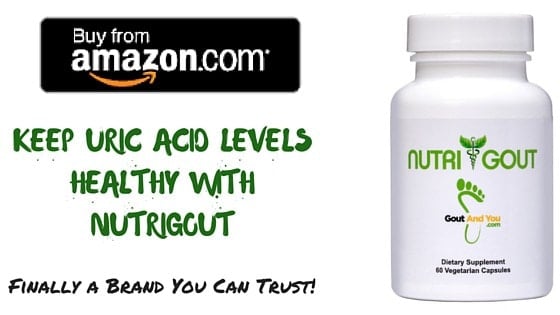¿La dieta DASH es realmente buena para la gota?
Ha habido noticias importantes en el mundo de la gota en las últimas semanas con respecto a un estudio publicado En Artritis y Reumatología realizado por el Colegio Americano de Reumatología. Stephen Juraschek, MD, PhD, de la Facultad de Medicina de la Universidad Johns Hopkins, y sus colegas estudiaron a 103 adultos con prehipertensión o presión arterial alta en etapa 1. Los participantes fueron seleccionados al azar para consumir la dieta DASH, lo que significa Enfoques Alimenticios para Detener la Hipertensión, ya sea una dieta de control (su dieta estadounidense promedio) y recibieron niveles bajos, medios y altos de sodio durante un mes, cada uno en orden aleatorio. Los participantes recibieron diferentes cantidades de sodio: 1,2 gramos (bajo), 2,3 gramos (medio) o 3,4 gramos (alto). El número más alto corresponde a la dieta estadounidense estándar.
Ahora bien, para quienes no conocen la dieta DASH, esta enfatiza el consumo de frutas, verduras, productos lácteos bajos en grasa, cereales integrales, poca carne que debe ser magra, pescado, nueces, frijoles, sí frijoles y alimentos bajos en grasa. ¿Esto te recuerda a algo? Si ha leído mi libro y los artículos en este sitio, casi suena como mi consejo. dietética para la gota..
Independientemente, este estudio DASH mostró que en realidad redujo los niveles de ácido úrico de los participantes en un promedio de aproximadamente 0,35 mg/dl. En sujetos con niveles de ácido úrico superiores a 7 mg/dl, la dieta DASH redujo el ácido úrico en más de 1 mg/dl. Ahora, lo que resulta un poco extraño es que el aumento de la ingesta de sal se atribuye todo el mérito de los niveles más bajos de ácido úrico.
Para poner esta cifra en perspectiva, los medicamentos destinados a tratar la gota como allopurinol generalmente reducen los niveles de ácido úrico en 2 miligramos por decilitro. El Dr. Juraschek dijo: "Cuando alcanza una reducción como la que creemos que sucedió con la dieta DASH original en este estudio, el efecto comienza a ser comparable a la medicación para la gota".
Los investigadores plantearon la hipótesis de que reducir la ingesta de sodio/sal reduciría el ácido úrico, pero descubrieron que era todo lo contrario. Además, afirman que el consumo de sal en la dieta estadounidense típica, que es alta y excede las necesidades del cuerpo, es la razón principal por la que se redujeron los niveles de ácido úrico de los participantes. Luego, los investigadores dicen que no entienden el mecanismo por el cual una mayor ingesta de sodio/sal disminuye el ácido úrico. Así que no les queda claro.
Además, los investigadores ahora recomiendan la dieta DASH como un método eficaz y no farmacológico para prevenir los ataques de gota. El Dr. Juraschek dice: "Los médicos ahora pueden recomendar con confianza la dieta DASH a los pacientes con gota para reducir los niveles de ácido úrico". En realidad ? Los médicos ahora recomendarán la dieta DASH para que las personas que padecen gota puedan consumir más sal, lo que puede provocar presión arterial alta y otros problemas de salud.
No hacen la pregunta de que tal vez, solo tal vez, se deba dar crédito a la parte de la dieta y al hecho de que los participantes comieron menos carne y más carbohidratos complejos. Como frutas, verduras, pan integral, pasta, arroz, nueces, frijoles, productos lácteos bajos en grasa y pescado, como se describe en mi libro que viene con un "desafío de análisis de sangre de60 días o le devolvemos su dinero"para probarte que si sigues mi plan de alimentación para la gota, ¡puedes reducir tus niveles de ácido úrico en la sangre!
Esta es la verdad y de alguna manera se oscurece al recomendar comer más sal para reducir los niveles de ácido úrico. Es el aumento de la ingesta de sal el verdadero factor diferenciador. También se cita al Dr. Juraschek diciendo: "Si uno consumiera más sodio para mejorar el ácido úrico, podría empeorar la presión arterial".
Que hacer ?
Lo mejor es seguir una dieta para la gota que incluya el 10% de las calorías diarias en proteínas de carnes magras y pescado. El 10% de tus calorías diarias debe provenir de productos lácteos bajos en grasa, como leche, quesos, yogur, mantequilla, etc. y el 80% de sus calorías diarias deben estar compuestas por carbohidratos complejos, como frutas frescas, verduras, panes y pastas integrales, arroz, nueces y frijoles.
No necesita sal adicional, los alimentos naturales ya contienen suficiente para satisfacer sus necesidades diarias, así que como dicen "tome este estudio con un grano de sal" y es mejor no seguir la dieta DASH aumentando su consumo de sal repentinamente. Tampoco querrás pasar de la gota a la presión arterial alta. ¡Usa el sentido común y piensa en tu salud! No se deje engañar.
